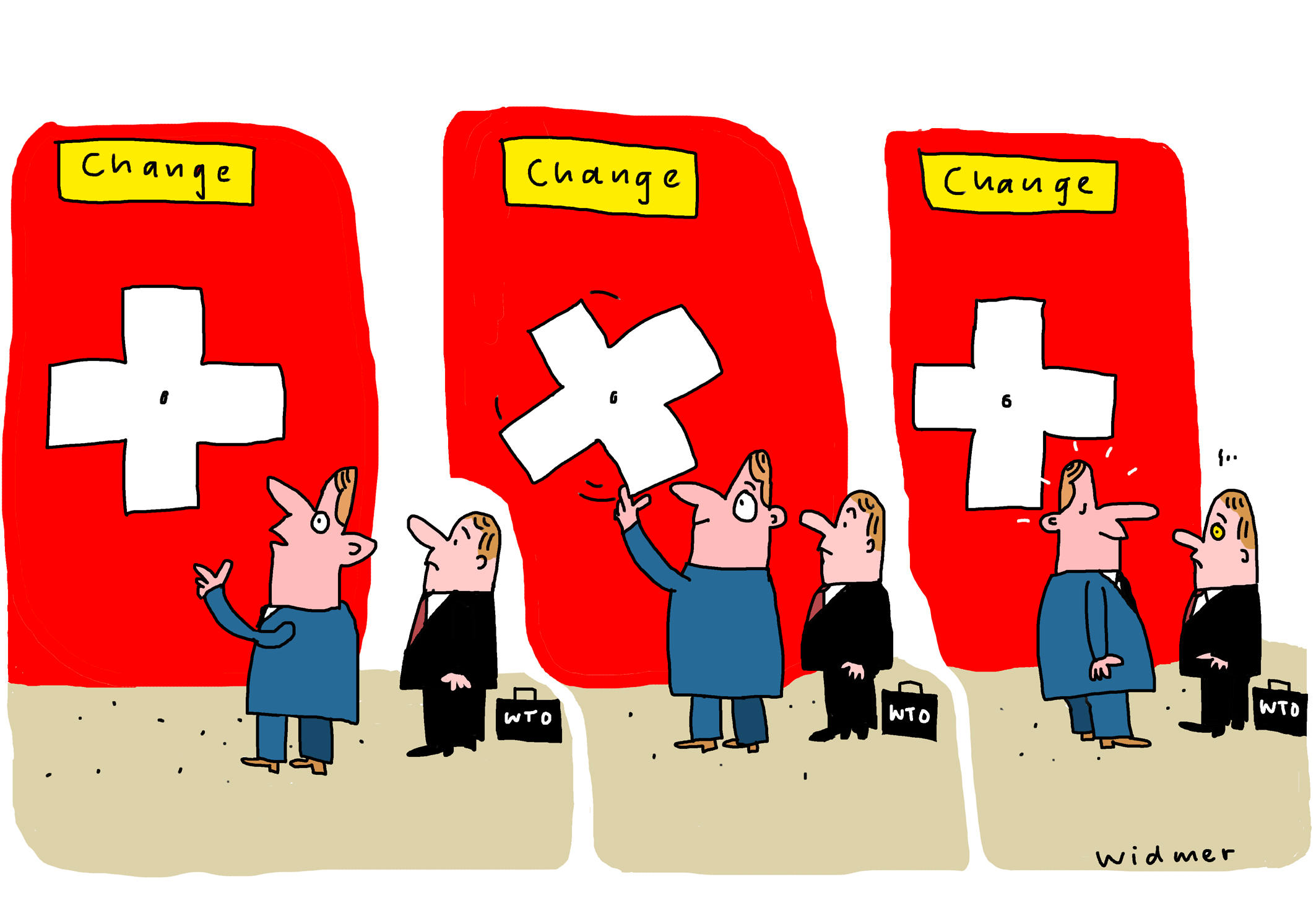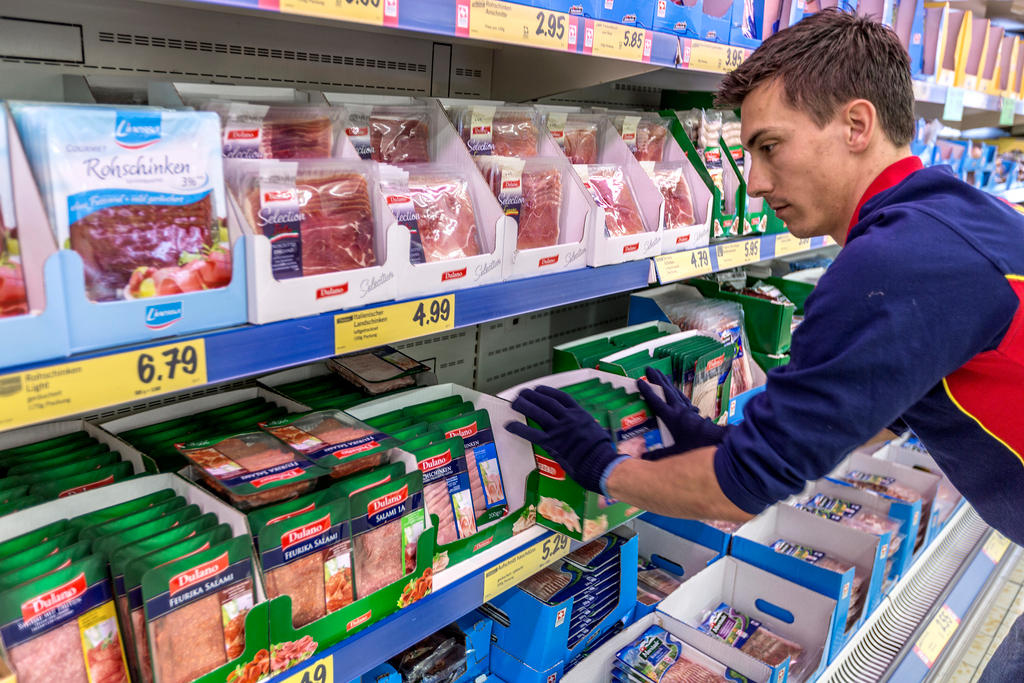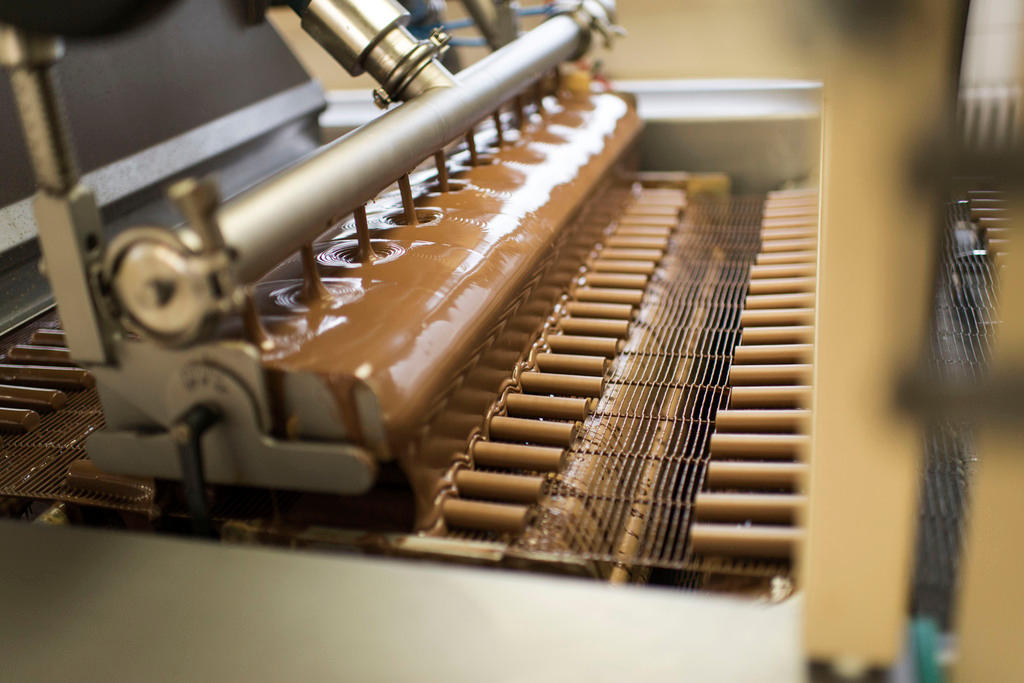How ‘wise-guy’ Switzerland is outwitting the WTO

Government backing of the agricultural industry in Switzerland is stronger than in practically anywhere else in the world. Now and again, however, the country faces criticism from the World Trade Organization (WTO).
More than half of the Swiss economy’s earnings are generated abroad. This is why the country is committed to breaking down international trade barriers while protecting its own agricultural industry with record-high duties and subsidies. It implements the WTO requirements so cleverly that it has so far evaded all reproach.
The most recent example of this is the so-called Schoggigesetz (chocolate law). With the WTO Agreement on Agriculture prohibiting all future export subsidies, Switzerland will be forced to revise this law, which governs subsidies for food exporters.
On the basis of the law, the Swiss government previously contributed almost CHF100 million ($103 million) a year to compensate Swiss food exporters for the difference between Swiss and global market prices for milk and grains.
The state seems willing to abolish the export subsidies stipulated in the chocolate law, but taking these government contributions away risks driving food exporters abroad.

More
Swiss agriculture under fire at WTO
Switzerland already has a solution up its sleeve to avoid breaching the WTO Agreement on Agriculture while still supporting its own agricultural industry and food exporters: it hopes to make it easier for exporters to import duty-free milk and grains for food production, while paying subsidies to farmers instead of exporters.
‘Wise-guy tactics’
But is such a move in line with the WTO’s wishes or against them? Critics say the old subsidies would simply continue to be paid via different channels and under a new name, an approach the Neue Zürcher Zeitung (NZZ) labelled “Swiss wise-guy tactics”.
Christian Häberli, a World Trade Institute researcher at the University of Bern, feels the same way. The part-time judge in WTO arbitration proceedings believes the alternative solution is also in breach of the WTO agreement.
“I don’t know what bit of it is supposed to be anti-WTO,” responds Farmers’ Union President Markus Ritter. The two disagree on how private these industry regulations supporting exporters really are. Must farmers surrender their CHF0.03 subsidy to exporters as industry representatives are claiming?
Ritter says the industry will not collect any money from farmers: the funds will come from milk-buyers’ own earnings, meaning there will no longer be any government export subsidies. The financing is to be provided within the industry on a private and voluntary basis.
However, the industry organisation BO Milch, of which producers, milk processers and retailers are members, makes clear on its website that the fund “is to be financed by the new milk allowance which the government intends to pay to milk producers”.
This is why WTO judge Häberli has come to the conclusion that the alternative to the chocolate law is anti-WTO: “The Agreement on Agriculture prohibits all government-backed export subsidies from 2021 – including ones that are not funded by the taxpayer.”
Why no one will complain
Häberli believes Switzerland has little to worry about, since “where there is no complaint, there is no WTO judge”.
But why is no one complaining? “Some countries that would be perfectly entitled to initiate legal proceedings are still able to supply their own products, since almost half of the agricultural products consumed in Switzerland are imported,” he says.
What’s more, it would not be worth going to all the effort of bringing proceedings against a small country.
“So I think they can quite happily carry on supporting exports in line with the chocolate law,” Häberli concludes. To the detriment of Swiss taxpayers and farmers in developing countries.
(Translated from German)

In compliance with the JTI standards
More: SWI swissinfo.ch certified by the Journalism Trust Initiative



You can find an overview of ongoing debates with our journalists here. Please join us!
If you want to start a conversation about a topic raised in this article or want to report factual errors, email us at english@swissinfo.ch.